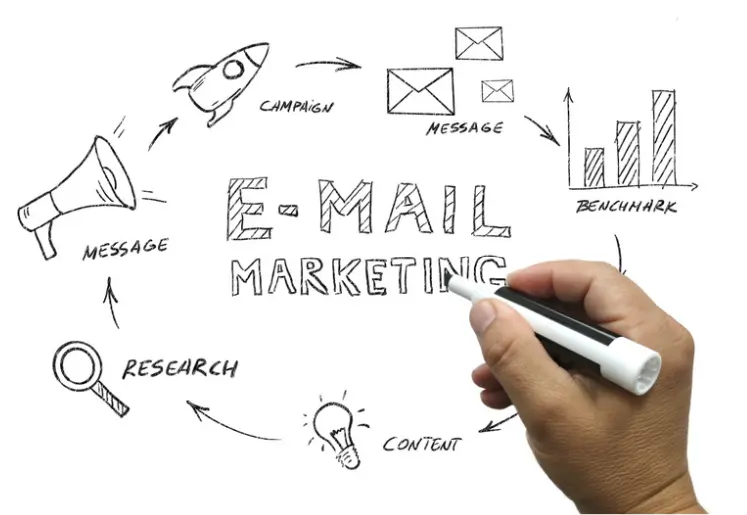“Marketing is no longer about the stuff that you make, but about the stories you tell.”
Seth Godin
In the realm of email marketing, ensuring that your meticulously crafted messages reach your subscribers’ inboxes is paramount. Email deliverability remains a critical challenge, often dictating the success or failure of email marketing campaigns. This article delves into the complexities of email deliverability, the role of advanced email marketing software in overcoming these challenges, and the practical steps marketers can take to enhance their email deliverability rates.
Understanding Email Deliverability Challenges

Email deliverability refers to the ability of an email message to reach the recipient’s inbox without being blocked or diverted to the spam folder. Achieving high deliverability rates is not just about hitting the send button; it involves a nuanced understanding of various factors that influence whether an email is deemed trustworthy by email service providers (ESPs).
One significant challenge is the ever-evolving nature of spam filters. ESPs continuously update their algorithms to protect users from unwanted emails. According to a report by Return Path, 20% of legitimate emails never make it to the inbox due to stringent spam filters. Factors such as sender reputation, email content, and recipient engagement levels play crucial roles in determining whether an email is flagged as spam.
Leveraging Advanced Software for Better Deliverability

Modern email marketing software incorporates sophisticated tools designed to enhance deliverability. These tools use algorithms to analyze various aspects of email campaigns and provide actionable insights to improve deliverability rates.
One such tool is deliverability monitoring. Advanced software solutions offer real-time monitoring of email campaigns, alerting marketers to potential issues that could affect deliverability. For instance, platforms like SendGrid and Mailgun provide detailed analytics on email performance, including open rates, bounce rates, and spam complaints. These insights help marketers identify and address deliverability issues promptly.
Authentication protocols are another critical component. Implementing authentication methods such as DomainKeys Identified Mail (DKIM), Sender Policy Framework (SPF), and Domain-based Message Authentication, Reporting & Conformance (DMARC) can significantly enhance deliverability. These protocols verify the legitimacy of the sender, reducing the likelihood of emails being marked as spam. For example, Google’s Gmail uses these protocols to filter emails, and non-compliance can result in emails being sent to the spam folder.
Importance of Sender Reputation
Sender reputation is a key determinant of email deliverability. ESPs assign a reputation score to every sender based on various factors, including the volume of emails sent, the quality of the email list, and recipient engagement rates. A high sender reputation increases the likelihood of emails reaching the inbox, while a poor reputation can lead to emails being blocked or filtered as spam.
Maintaining a clean email list is essential for preserving sender reputation. Email marketing software with list management features can help marketers regularly clean their lists, removing invalid or inactive email addresses. Tools like ZeroBounce and NeverBounce offer email verification services that identify and remove bad email addresses, ensuring that marketers send emails to valid, engaged recipients.
Crafting Engaging Content

The content of the email itself also impacts deliverability. ESPs analyze email content for spammy keywords, excessive use of capitalization, and other factors that might indicate spam. Therefore, crafting high-quality, engaging content is crucial. Marketers should focus on creating personalized, relevant emails that provide value to recipients.
AI-driven email marketing software can assist in content optimization. Platforms like Persado use AI to generate and optimize email content, ensuring that it resonates with recipients and avoids spam triggers. By analyzing recipient responses and engagement metrics, AI tools can help marketers fine-tune their email content for better deliverability.
Practical Implementations and Business Benefits
Several email marketing platforms exemplify the integration of advanced deliverability tools. For example, Mailchimp offers comprehensive deliverability insights and guides on improving sender reputation. Its platform includes features such as authentication setup, deliverability monitoring, and content optimization tips.
Similarly, HubSpot’s email marketing software provides robust deliverability tools. HubSpot’s platform includes built-in analytics to monitor email performance and suggest improvements. It also offers resources on best practices for email authentication and list management, helping marketers enhance their deliverability rates.
The benefits of focusing on email deliverability are substantial. Higher deliverability rates lead to increased open and click-through rates, driving better engagement and conversions. Moreover, maintaining a good sender reputation helps build trust with recipients, enhancing the overall effectiveness of email marketing campaigns.
Conclusion

Email deliverability is a critical aspect of email marketing that requires continuous attention and optimization. Advanced email marketing software provides the tools necessary to monitor and improve deliverability rates, from real-time analytics and authentication protocols to AI-driven content optimization.
Marketers must leverage these tools to navigate the complexities of email deliverability and ensure their messages reach the intended audience. By maintaining a clean email list, crafting engaging content, and using authentication methods, businesses can enhance their email deliverability and achieve better campaign results.
For marketers looking to optimize their email marketing efforts, focusing on deliverability is essential. By integrating advanced deliverability tools and adhering to best practices, businesses can ensure their emails reach the inbox, driving higher engagement and better outcomes.
References:
- Return Path – The Hidden Metrics of Email Deliverability
- SendGrid – Deliverability Monitoring and Insights
- Mailgun – Email Deliverability Services
- ZeroBounce – Email Verification and Validation
- NeverBounce – Real-Time Email Verification
- Persado – AI-Driven Content Generation
- Mailchimp – Email Deliverability Guide
- HubSpot – Email Marketing Best Practices


